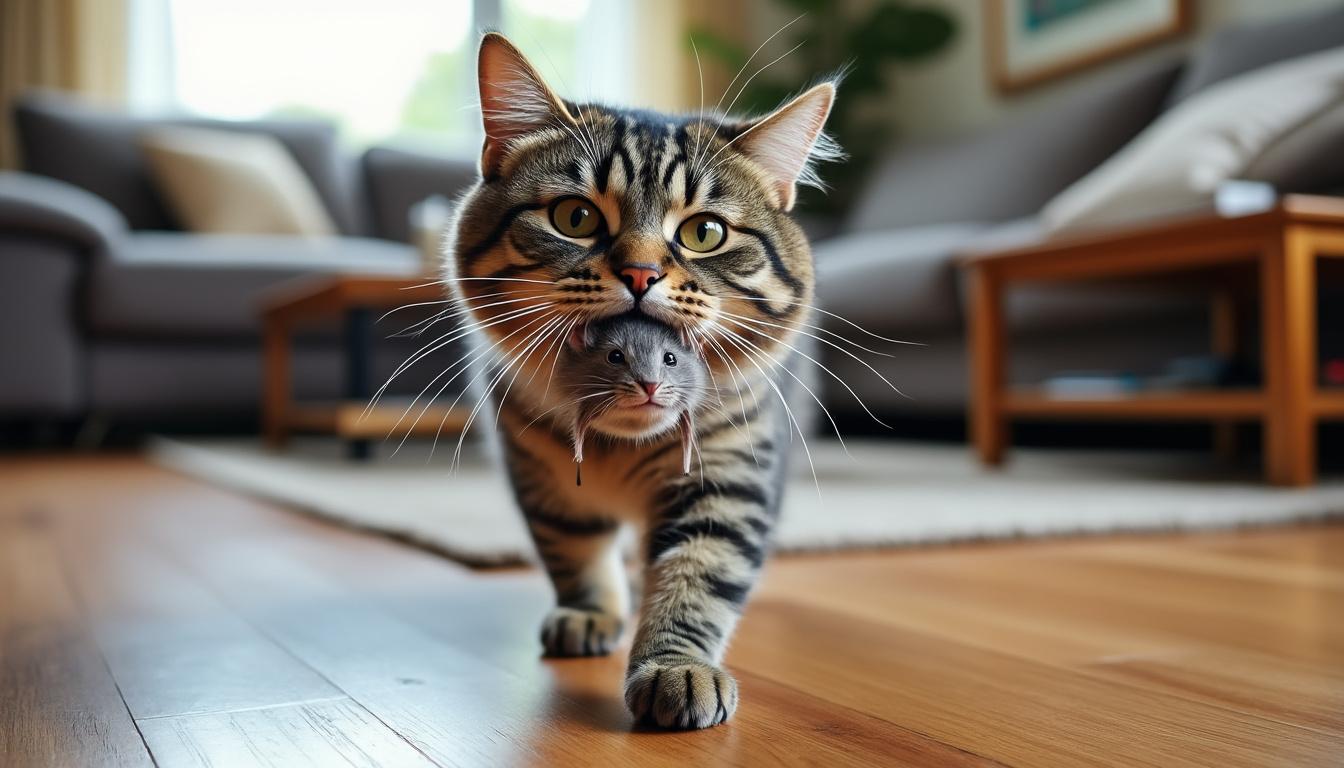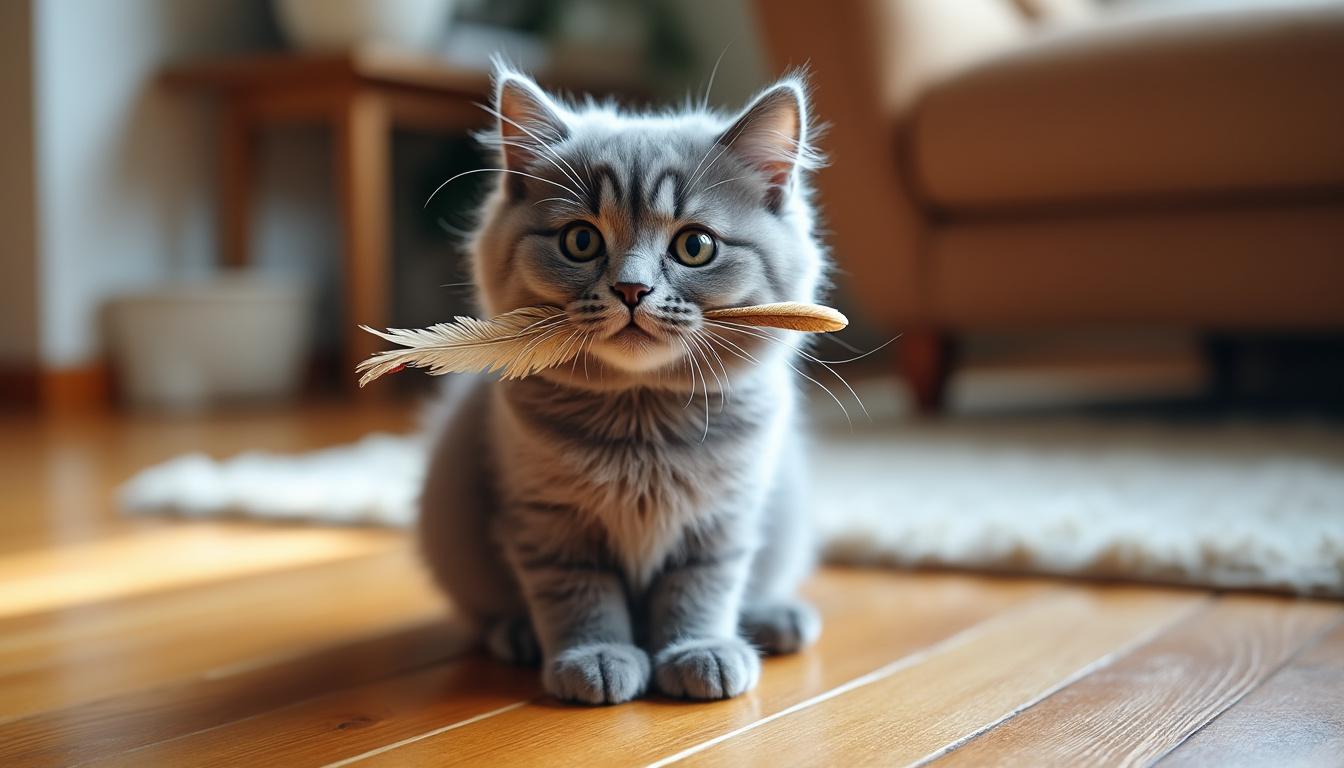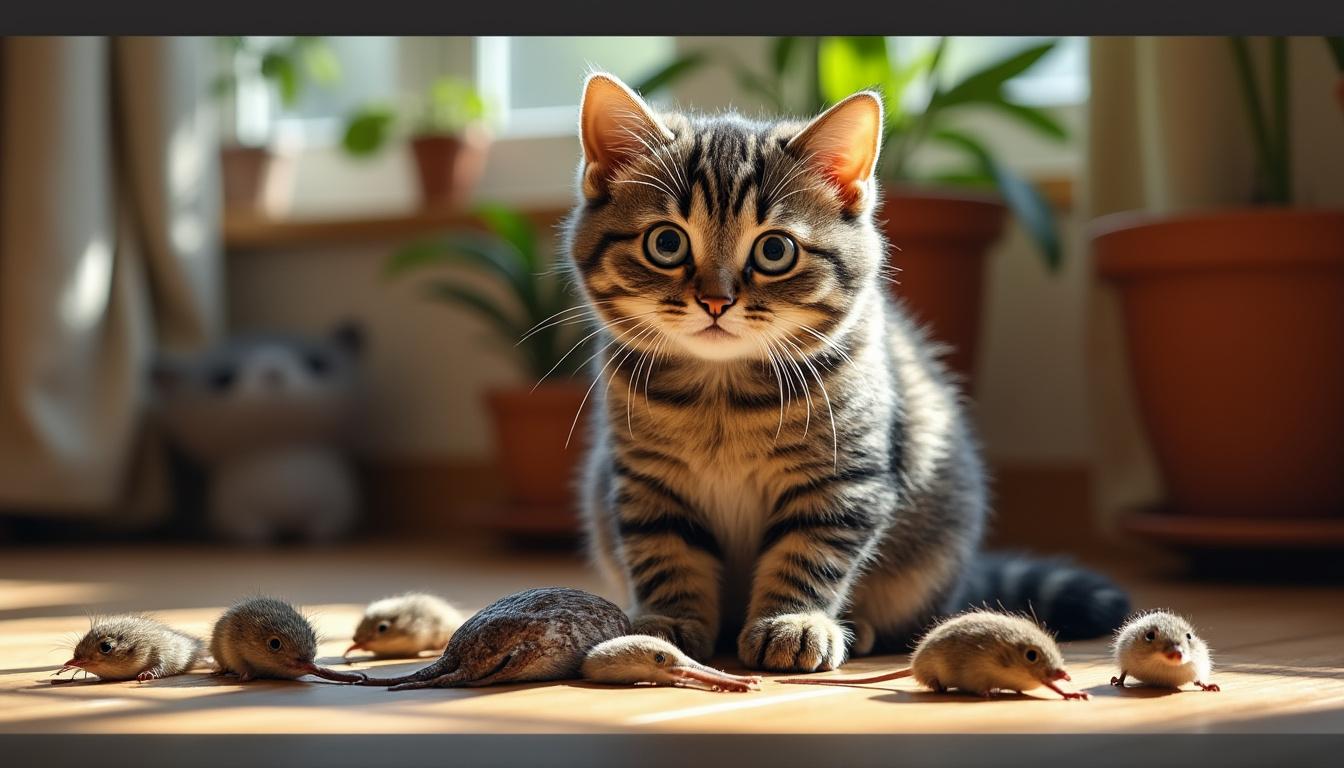For cat lovers, discovering a small, lifeless creature delivered to your doorstep or right at your feet can be quite unsettling. Many may wonder why their seemingly sweet feline companions choose to bring them “gifts” that might leave an unpleasant impression. However, the behavior is more common than one might think, and there’s a deeper meaning behind it. Understanding the instinctual actions of your cat sheds light on this perplexing ritual. In fact, a variety of factors influence this behavior—from primal instincts to social interactions that stem from their ancestry as hunters. If you’ve ever found yourself questioning this peculiar act of your pet, you’re not alone. The motivations behind this behavior are numerous and fascinating, and they can reveal just how complex the bond between humans and cats truly is.
Brief
- 🔍 Cats often bring dead animals as a sign of affection.
- 🏹 It’s an expression of their innate hunting instincts.
- 😺 Cats might present “gifts” as a thank you for care and attention.
- 🐾 Hunting behavior indicates dominance or social standing among pets.
- 🎉 Enticing boredom can lead to these hunting displays.
What Does It Mean When My Cat Brings Me Dead Animals?
Cats are fascinating creatures that often evoke several emotions among their human companions. When they bring you dead animals, they are expressing their instincts and behavior shaped over centuries as hunters. Cats are natural predators, and even indoor cats will exhibit hunting behaviors as part of their instinctual programming. When your beloved feline catches something and presents it to you, it’s usually not for the sake of grossing you out. Instead, this behavior stems from various motivations that can reveal their unique way of communicating affection, dominance, and survival instincts.

Instinctual Hunting Behavior
First off, let’s explore the primal instinct that drives cats to hunt. Regardless of whether your cat is a pampered indoor pet or a feral street cat, they possess strong predatory instincts. When they pounce on a small animal like a mouse or a bird, it triggers their hunting behavior. Even if they are kept well-fed and satisfied, their innate desire to hunt remains intact. They still require mental stimulation to prevent boredom.
- 🦇 Mice
- 🐦 Birds
- 🐍 Snakes
- 🦗 Insects
- 🐰 Rabbits
Moreover, understand that hunting in the wild serves several purposes. For cats, it’s not merely about securing food. The act plays a significant role in their survival and psychological well-being. Hunting stimulates their senses, keeps them agile, and allows them to engage in natural behavior. Hence, bringing dead animals home becomes an extension of this instinct, reinforcing their role as hunters even in the comfort of your home.
| Animal Type | Hunting Scenario |
|---|---|
| Mice | Often targeted for being easy prey, they evoke quick hunting responses. |
| Birds | Usually provide a challenge, stimulating more complex hunting behaviors. |
| Insects | Small and quick, these can be caught easily, a great practice for young cats. |
Expressions of Affection: Cats Share Their Kills
It may sound surprising, but cats often bring dead animals as a sign of affection. Just as they would share a kill with a fellow feline in the wild, your pet’s gift signifies a wish to bond. Your cat may subtly view you as part of their family, and sharing their catch is a way to show you that you are valued.

A Deeper Social Connection
When a cat brings their owner a dead animal, it is often interpreted as a means of reinforcing their social connection. This playful act can evoke a range of interpretations: a display of love, appreciation, or even an invitation to engage. Cats can be sensitive to their owner’s habits, and if they’ve perceived acts of kindness or engagement, it’s not a stretch to assume that they wish to reciprocate by offering you a “gift.” Just as humans may bring gifts to symbolize affection, cats communicate the same way through their hunting prowess.
- 💖 Expressing love
- 🎊 A token of gratitude
- 👪 Fostering social bonds
This behavior can transcend your direct interaction with the cat; merely being present in a domestic environment can be enough for them to feel a sense of connection. All of this highlights the intriguing layers of feline behavior that include emotional depth, instinctual drives, and social recognition. Cats are social animals and derive happiness from sharing experiences, which reinforces why they might bring you a ‘gift’—it’s their way of saying, “Look what I caught, do you see how great I am?”
Dealing with Boredom: A Potential Driving Force
It’s essential to recognize that boredom can be a significant motive behind a cat’s decision to hunt. The indoor environment can sometimes feel monotonous, prompting cats to seek adventure. If their surroundings lack stimulation or if their human companions are preoccupied, boredom can lead them down the path of hunting small critters roaming outside.
Encouraging Playful Alternatives
In order to enhance their environment and reduce this behavioral issue, providing your cat with toys and playtime can be very beneficial. Engaging your cat in interactive play sessions using feather wands or laser pointers can redirect their hunting instincts while providing the stimulation they crave. Investing in puzzle toys or food dispensers that require problem-solving can further keep their minds engaged.
- 🎾 Interactive toys
- 🧩 Puzzle feeders
- 🎉 Engaging play sessions with humans
Strengthening the bond between you and your cat through shared play can minimize their need to hunt inappropriately. This can ultimately lead to a more harmonious home life, reducing the chances of surprise ‘gifts’ sneaking into your day!
Understanding the Broader Cat Psychology
While the reasons for bringing home dead animals can be complex, they ultimately reflect the multifaceted psychology of cats as both companions and predators. For many pet owners, the behavior might seem strange or unappealing; nevertheless, it’s essential to understand that this behavior is deeply rooted in their genetic makeup and ancestral instincts. Cats are social predators; they naturally exhibit certain behaviors, including hunting, territorial marking, and expressing dominance.
Navigating Cat Behavior: Consultation and Management
If your cat’s behavior is causing you anxiety or discomfort, it’s perfectly okay to seek the advice of a veterinarian or animal behaviorist. They can assist in determining if any underlying issues cause the behavior or whether it reflects an expression of happiness and affection. Understanding these dynamics empowers you as a pet owner to create an environment that accounts for your feline friend’s well-being while ensuring that everyone feels comfortable and safe in the household.
- 🩺 Consult a vet
- 🐈 Regular check-ups
- 📚 Educate yourself on feline behavior
Frequently Asked Questions
What should I do if my cat brings me a dead animal?
Understanding your cat’s motivations is key. Often, it’s just their primal instincts at play, so try not to be upset.
Is it safe to eat a dead animal that my cat has brought me?
No, it is generally not safe to eat a dead animal your cat has caught; they could carry parasites or toxins.
Why does my cat keep bringing me dead animals?
Cats often act out due to boredom, instinct, or wanting to express affection, so providing stimulation is helpful.

